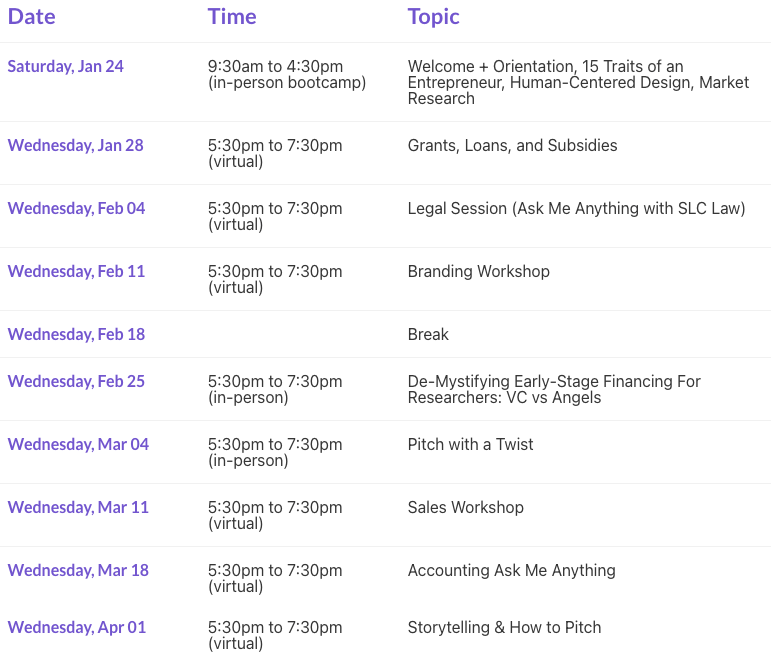Whether it be for bookkeeping, financial reporting, tax purposes or all of these factors, it may be tough to decide whether an accountant should be hired for your business or if you’re better at handling your finances yourself. When making this decision, there are a couple of factors to keep in mind that can ease this decision-making process:
Accountant vs. Bookkeeper
There is a common misconception that your startup may require an accountant if it begins to incur many transactions and organizing the business’s overall finances becomes increasingly difficult. However, if the main issue at hand pertains to arranging your expenses and income, a more suitable, cost-efficient solution for your startup would be to hire a bookkeeper instead of an accountant.
A bookkeeper can regularly meet with you (weekly, bi-weekly, monthly, etc.) or meet on an occasional basis to input your company’s transactions and perform organizational tasks you request for. Given the nature of your business, a bookkeeper could also recommend more suitable accounting policies, digital alternatives to handle your accounting independently, as well as categorize transactions eligible for tax benefits!
Prior Accounting Background
The Balance Sheet, Income Statement and Cash Flow Statement are vital financial statements that small businesses need for tax filing, quantifying the business’s wellbeing, showing lending agencies for a potential loan/grant or if your business was to be audited. If you possess knowledge of the basic financial principles or find time to learn about them, you could potentially handle your own accounting.
However, as a company grows, handling these financial statements becomes more demanding and may require additional accounting expertise. In this case, hiring an accountant may be a more efficient and effective approach. If an accountant is hired, they could handle your financial statements as well as give advice on better accounting practices, optimal tax and financial strategies, and more proficient insight on the overall health of your small business.
Openness to Accounting Software
As mentioned above, an accountant may not always be necessary for your small business. Though, if an accountant does not handle your finances, you’d be responsible for handling them yourself and complying with legal standards that require using some complex accounting principles. If done manually, not only could it take an extended period to finalize, but some mistakes could be made due to the manual processing. A more efficient means to handle your business’ accounting could be by using accounting software. This way, the features added to the respective software could minimize the possibility of making an accounting error.
Though accounting software may seem intimidating, there are diverse software that addresses the different primary accounting needs that different small business owners may have. In addition to the various software suitable for handling different accounting concerns, there are also accounting software that are more user-friendly that are suitable for small business owners who would want to handle their accounting but are hesitant about utilizing a software.
However, hiring an accountant to manage your preferred accounting software is another optimal alternative. If your accountant uses an accounting software, they’d be able to easily share your business accounts with you. This way, they’ll be able to explain what the reports mean extensively and produce tables and charts to assist you in understanding the current state of your small business’ financial health. Additionally, your accountant will be able to continuously monitor the state of your business and keep track and keep you updated on important things such as your cash flows or budget maintenance.
Availability to Handle all Accounting Needs for Business
As a business owner, your time is probably without a doubt very valuable to you. If you do not have many employees or delegate tasks, handling all the accounting matters for your business can be very time-consuming, especially if you believe the time could be spent on another matter regarding your business.
Though the financial statements are vital, there are other accounting reports that you may deem necessary when looking ahead for your business. This could be budgeting and projecting for the business’ next year plan or even its five-to-ten-year plan. Developing a financial strategy for this could be quite complex and will take up a lot of your time. With this regard, an accountant may be helpful as they will generate the reports for you and with their experience and expertise, could further advise better tactics. Ultimately, having an accountant would give you more time to handle other aspects of your business.
Knowledge on Tax Requirements Applicable to your Business
A common financial challenge that startups face is tax compliance and filing for their business’ taxes. Dealing with numerous legal paperwork while running your business can be quite difficult. Given the nature of tax compliance, hiring an accountant may be beneficial for your business as the accountant will be familiar with the federal, state and local legal requirements that pertain to your business. The accountant could also help with your business’ filing reports and advice on actions that need to be taken.
If you believe you have a good understanding of the tax compliance applicable to your startup, then you could still handle your taxes solely. Though, the consequences of inaccuracy or failure to handle all the paperwork could be costly. However, various software could assist with this regard that have been approved by the Canada Revenue Agency
Given accountants extensive knowledge in different financial/accounting aspects, having an accountant to further help with your taxes could save a lot of time and additional research (if you are not familiar with tax compliance or filing). However, if hiring an accountant may be too costly at this point in your business, hiring a tax advisor could also be beneficial for this concern.


